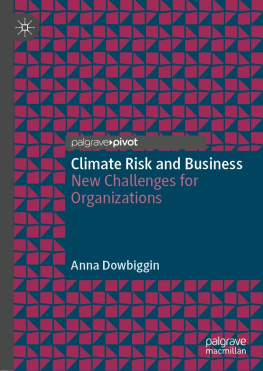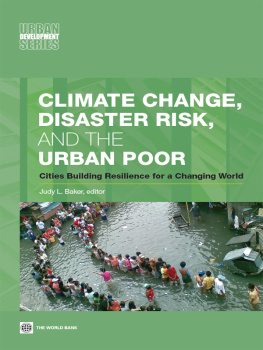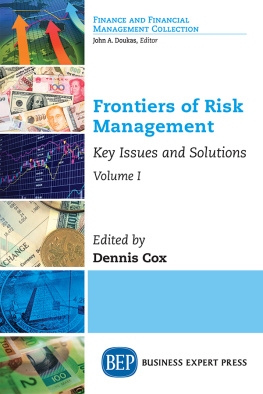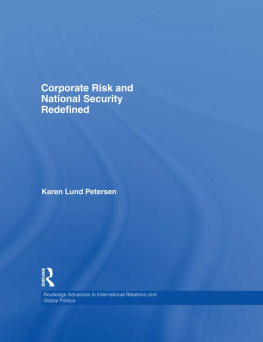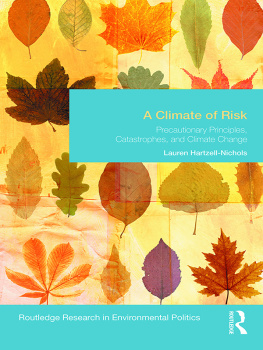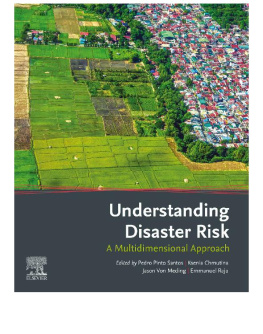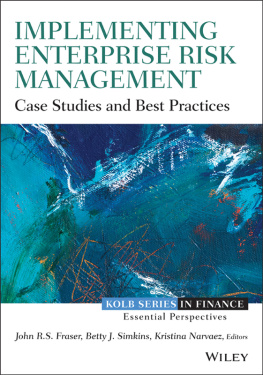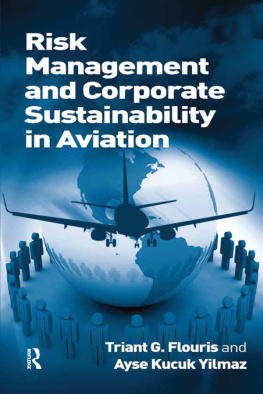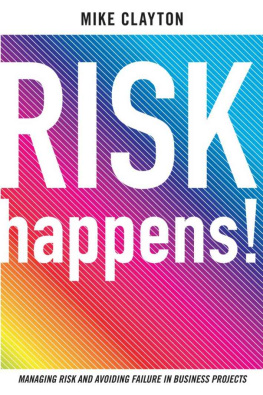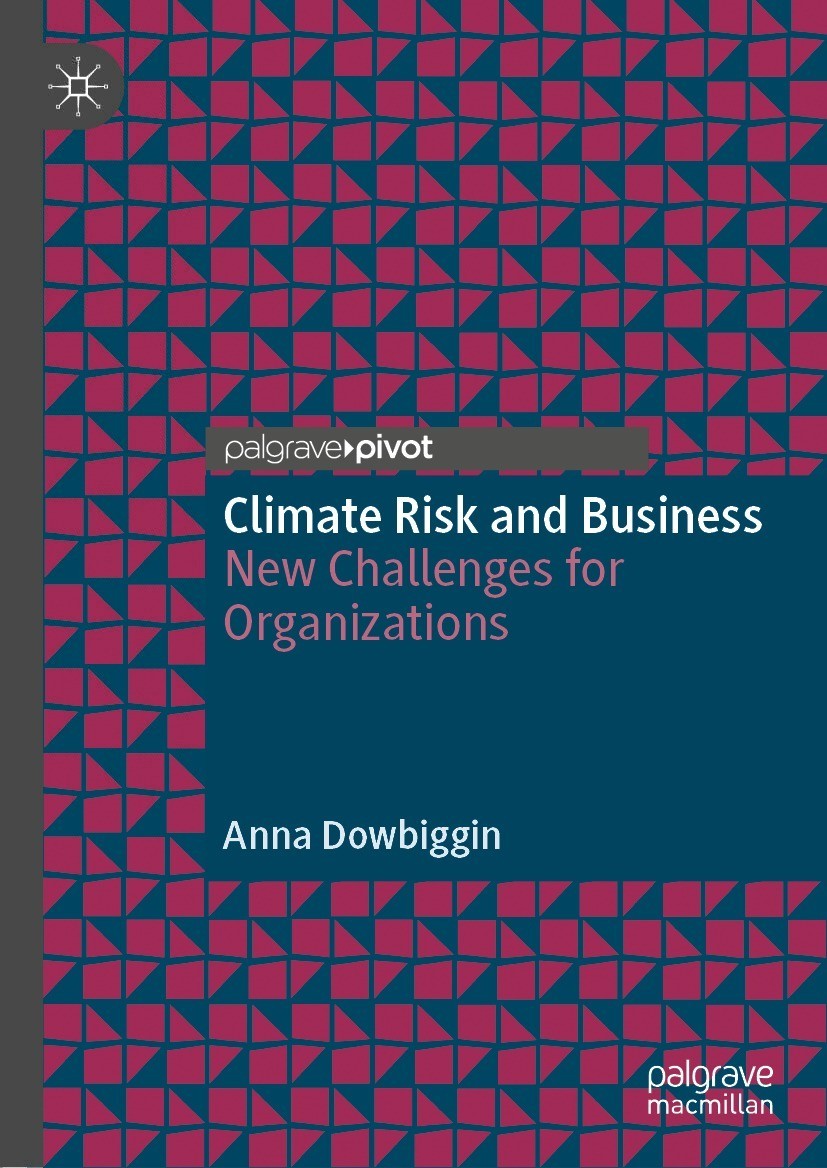Anna Dowbiggin
Climate Risk and Business
New Challenges for Organizations
1st ed. 2021

Logo of the publisher
Anna Dowbiggin
University of Guelph-Humber, Toronto, ON, Canada
ISBN 978-3-030-78243-6 e-ISBN 978-3-030-78244-3
https://doi.org/10.1007/978-3-030-78244-3
The Author(s), under exclusive license to Springer Nature Switzerland AG 2021
This work is subject to copyright. All rights are solely and exclusively licensed by the Publisher, whether the whole or part of the material is concerned, specifically the rights of translation, reprinting, reuse of illustrations, recitation, broadcasting, reproduction on microfilms or in any other physical way, and transmission or information storage and retrieval, electronic adaptation, computer software, or by similar or dissimilar methodology now known or hereafter developed.
The use of general descriptive names, registered names, trademarks, service marks, etc. in this publication does not imply, even in the absence of a specific statement, that such names are exempt from the relevant protective laws and regulations and therefore free for general use.
The publisher, the authors and the editors are safe to assume that the advice and information in this book are believed to be true and accurate at the date of publication. Neither the publisher nor the authors or the editors give a warranty, expressed or implied, with respect to the material contained herein or for any errors or omissions that may have been made. The publisher remains neutral with regard to jurisdictional claims in published maps and institutional affiliations.
Cover illustration: Melisa Hasan
This Palgrave Macmillan imprint is published by the registered company Springer Nature Switzerland AG
The registered company address is: Gewerbestrasse 11, 6330 Cham, Switzerland
The book Climate Risk and Business: New Challenges for Organizations by Anna Dowbiggin provides a timely account of the significant business challenges created by climate change. The book makes the case for the urgent need to decarbonize and offers insights into transformational processes to mitigate climate change and manage climate risks. A worthwhile read for academics and practitioners alike!
Martina Linnenluecke, Director, Centre for Corporate Sustainability and Environmental Finance, Macquarie Business School, Macquarie University, Australia
This book translates the many challenges of climate change for business into one of the essential tasks of corporate decision making: the successful management of risks. Anna Dowbiggin develops a comprehensive understanding of the multifaceted risks that climate change poses for business.
Dirk Matten, Associate Dean Research, Professor of Strategy, and Hewlett-Packard Chair in Corporate Social Responsibility, Schulich School of Business, York University, Canada
Climate Risk and Business is one of the few books that investigates the potential impacts of climate change from a business perspective. Only very recently have businesses switched from just speaking about the importance of climate change to doing actually something about it. With net-zero as a non-negotiable goal, this book promises to help them find a way to reach this goal in a timely manner.
Markus Biehl, Professor, Operations Management & Information Systems, Schulich School of Business, York University, Canada
Anna Dowbiggin has tackled the key question that is or should be being asked by the leadership and stakeholders of every organization in the world. What climate risks do we face, and how will we mitigate them? Through a comprehensive review of the risks, and the practices that could mitigate them, and how all of this is reported, the author is making a meaningful contribution to what is now a very urgent debate.
Heather McGregor, CBE, FRSE, Executive Dean, Edinburgh Business School, Heriot-Watt University, UK
We are globally facing an existential climate crisis and yet governments, companies and citizens are struggling to move fast enough to avoid the worst impacts of global warming. Bringing scholarly research perspectives to understanding the physical and transitional risks that climate change poses for business will be essential to making progress. Dowbiggins new book is a welcome intervention in this conversation.
Sarah Kaplan, Distinguished Professor, Rotman School of Management, University of Toronto, Canada
Preface
The purpose of this book is to conceptualize the transition challenges awaiting business as a result of climate risk. This is done through my tentative fivefold proposition in this book that organizations will rearrange organizational priorities and management practices to reduce risk exposures created by climate risk.
I regard this holistic academic treatment of climate risk as urgent and critical, given a fragmented literature base, low empirics on decarbonization practices, and the disappointing reported business response to reduce carbon across value chains.
Urgent, because we are running out of time to reduce global atmospheric GhG concentration levels. Critical, because an all-in view of business mitigation effort has an enormous role to play in course-correcting the climate trajectory we face.
This book is written for academic audiences primarily. My attention is given to theory as well as practice, to paint a view of empirics that may or may not be supported by theory, and to demonstrate where scholarly enlivenment opportunities are located. Readers may note some extant theoretical speculations may need refurbishments to account for current business conditions. I view this as a source of academic contribution needed in both literature and in the teaching of responsible business in business school curricula.
Furthermore, this book topic is written with a dominant risk management lens to reflect what I call the emergent ontological standardization of climate risk. Definite ideas about what climate risk is and its prescriptions (generally speaking) are promulgated by the Task Force on Climate-Related Risk and the Financial Stability Board.
This is a significant departure from prior management theory on organizational climate response and is reminiscent of conversations I have had with practitioners. In those instances, I had the privilege of lively and protracted business conversations about the difference between climate change and climate risk. Those differences, I hope, emerge as a secondary outcome of reading this bookto move past prior climate narratives, and to reconceptualize the climate emergency as a mainstream and multidimensional strategic business risk of ultimate importance to everyone.
Anna Dowbiggin
Toronto, Canada
Acknowledgments
I wish to thank my colleagues, friends, and family who contributed to the development of this book. I am grateful to Prof. Devi Jankowicz at Edinburgh Business School where I began to think about climate risk as a research agenda in 2017. The insights of colleagues at the US Academy of Management, Chatham House in the UK and the many business practitioners who are working on carbon strategies within the industry, are greatly acknowledged for their support. I am grateful for your insights, wisdomand friendships. I am also grateful for the inspiration routinely provided to me by the students I teach and mentor in business research and climate studies. I am also indebted to Ph.D. candidate William Little who assisted in the production of the manuscript, and to the editors at Palgrave Macmillan who took me on as the author for this important book topic.

